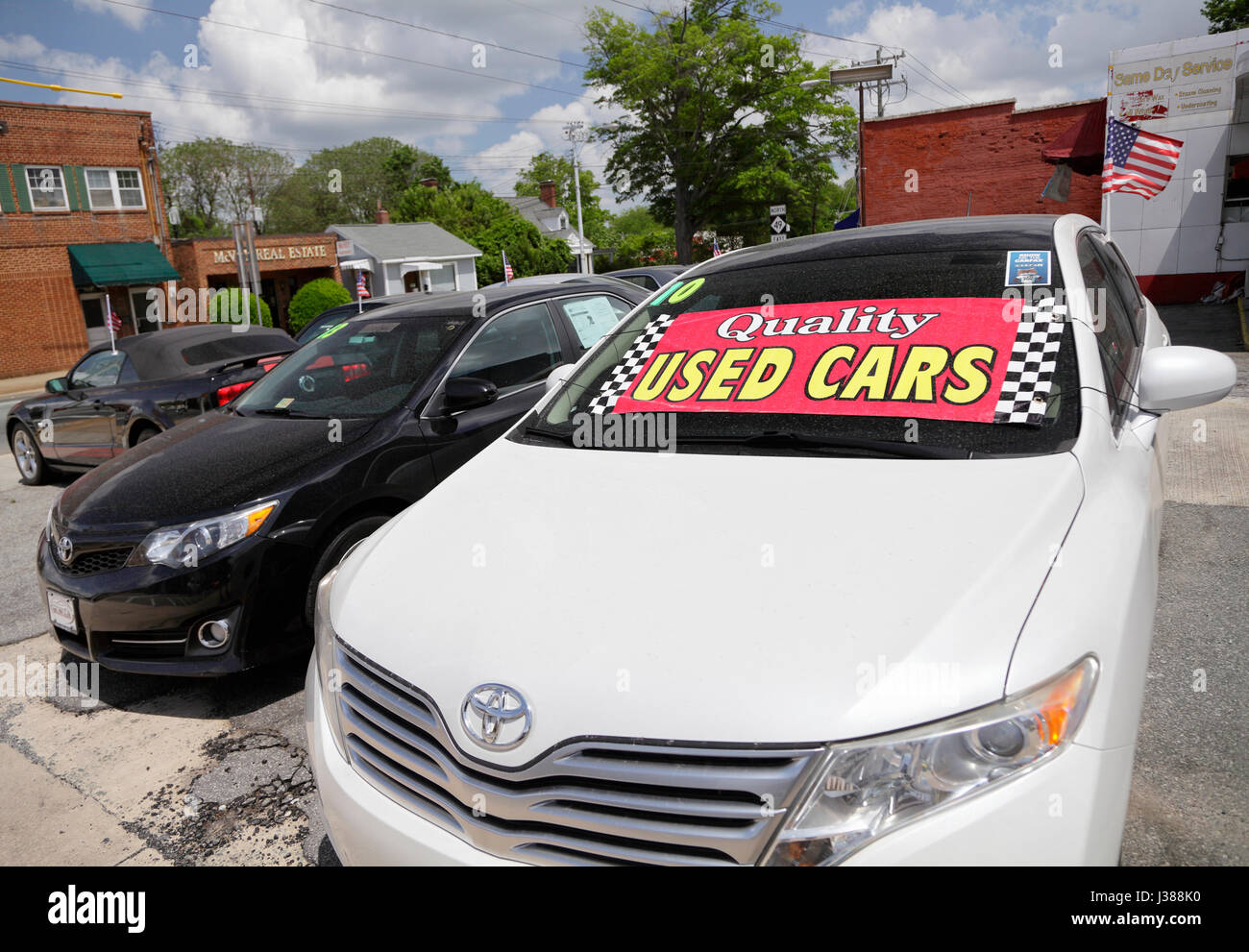Used Pickup Trucks Sale: Your Comprehensive Guide to Buying and Selling pickup.truckstrend.com
In an era where value and versatility reign supreme, the market for used pickup trucks is booming. Far from being merely a secondary option, a pre-owned pickup often represents a smarter, more economical choice for individuals and businesses alike. Whether you’re hauling equipment, embarking on off-road adventures, towing a boat, or simply seeking a robust daily driver, a used pickup truck offers immense utility without the hefty depreciation of a new vehicle. This comprehensive guide will navigate you through the intricate world of used pickup truck sales, empowering you with the knowledge to make informed decisions, whether you’re buying your next workhorse or selling your trusted companion.
Why Choose a Used Pickup Truck? The Smart Investment
Used Pickup Trucks Sale: Your Comprehensive Guide to Buying and Selling
The allure of a used pickup truck extends far beyond just a lower sticker price. Opting for a pre-owned model brings a host of financial and practical benefits that make it an increasingly popular choice:
- Significant Cost Savings: The most substantial advantage is the immediate savings. New vehicles depreciate rapidly, losing a significant portion of their value in the first few years. Buying used means you avoid this initial depreciation hit, getting more truck for your money.
- Lower Insurance Premiums: Insurance costs are generally lower for used vehicles, as their replacement value is less than that of a new model.
- Proven Reliability: Many popular truck models are renowned for their durability and longevity. A used truck, especially one with a good maintenance history, often has many years of reliable service left. You can research common issues for specific models and years, making a more informed decision.
- Immediate Availability: Unlike new trucks, which might have waiting lists or limited configurations, the used market offers a vast array of options available for immediate purchase.
- Access to Premium Features at a Lower Price: You can often find higher trim levels or models with desirable features (like advanced towing packages, leather interiors, or premium infotainment systems) at a fraction of their original cost.

Key Factors to Consider Before Buying Your Used Pickup
Purchasing a used pickup truck requires careful consideration of several crucial factors to ensure it meets your specific needs and budget.
1. Define Your Purpose and Budget
Before anything else, clarify why you need a truck. Is it for heavy-duty towing and hauling, off-roading, daily commuting, or a mix of everything? Your primary use case will dictate the size, engine, and features you need. Simultaneously, establish a realistic budget that includes not just the purchase price, but also potential costs for insurance, fuel, maintenance, and any immediate repairs or upgrades.
2. Research Makes, Models, and Sizes

The pickup truck market is diverse. Popular brands include Ford (F-Series), Chevrolet (Silverado), Ram (Ram 1500/2500/3500), Toyota (Tacoma, Tundra), GMC (Sierra), and Nissan (Titan, Frontier).
- Mid-size trucks (e.g., Toyota Tacoma, Chevrolet Colorado, Ford Ranger) are good for lighter loads, urban driving, and some off-roading.
- Full-size trucks (e.g., Ford F-150, Chevy Silverado 1500, Ram 1500, Toyota Tundra) offer a balance of towing capacity, payload, and comfort, suitable for most general uses.
- Heavy-duty trucks (e.g., Ford F-250/350, Chevy Silverado 2500/3500, Ram 2500/3500) are designed for serious towing and hauling, often featuring more robust engines (including diesel options) and chassis.

3. Essential Specifications and Features
- Engine Type: V6 engines offer good fuel economy and sufficient power for many tasks. V8 engines provide more power and towing capability but consume more fuel. Diesel engines (found primarily in heavy-duty trucks) offer superior torque for heavy towing and better fuel economy under load, but typically come with higher maintenance costs and initial purchase prices.
- Drivetrain: 2-wheel drive (2WD) is suitable for paved roads and lighter work. 4-wheel drive (4WD) is essential for off-roading, snow, or slippery conditions, offering better traction at the cost of slightly higher fuel consumption and complexity.
- Cab Style:
- Regular Cab: Two doors, two or three seats, longest bed for its overall length.
- Extended Cab (SuperCab/Double Cab): Two full-size front doors and two smaller rear doors (often suicide doors), with a small rear seat.
- Crew Cab (SuperCrew/CrewMax): Four full-size doors and a spacious rear seat, ideal for passengers, but often paired with a shorter bed.
- Bed Length: Varies from short (around 5.5 feet) to long (8 feet). Consider what you’ll be hauling.
- Mileage: Lower mileage generally means less wear, but don’t automatically dismiss higher-mileage trucks if they’ve been well-maintained. A truck with 150,000 miles that has regular service records might be a better buy than one with 80,000 miles that has been neglected.
4. Due Diligence: Vehicle History and Inspection
- Vehicle History Report (VHR): Services like CarFax and AutoCheck provide invaluable information, including accident history, previous owners, service records, odometer discrepancies, and title issues (salvage, flood, etc.). This is a non-negotiable step.
- Pre-Purchase Inspection (PPI): Always, always have a trusted, independent mechanic perform a thorough pre-purchase inspection. They can identify underlying mechanical issues, rust, or damage that might not be visible to the untrained eye. This small investment can save you thousands down the road.
- Test Drive: Take the truck for an extended test drive on various road conditions (city, highway, bumps). Pay attention to engine noise, transmission shifts, braking, steering feel, suspension, and any unusual vibrations or warning lights. Test all features: A/C, heat, windows, lights, infotainment, 4WD system.
Where to Find Your Next Used Pickup Truck
The used truck market offers multiple avenues for purchase, each with its pros and cons:
- Dealerships:
- Pros: Wider selection, financing options, potential for certified pre-owned (CPO) vehicles with warranties, professional sales staff, trade-in options.
- Cons: Generally higher prices due to overhead and reconditioning costs, sales pressure.
- Private Sellers:
- Pros: Potentially lower prices, more room for negotiation, direct communication with the previous owner (who can provide detailed history).
- Cons: No warranties, "as-is" sale, more risk if you don’t do thorough checks, no financing options, safety concerns during meetings.
- Online Marketplaces & Aggregators: Websites like AutoTrader, Cars.com, Kelley Blue Book (KBB), Edmunds, and local platforms like Craigslist or Facebook Marketplace allow you to browse thousands of listings from both dealers and private sellers. They offer powerful search filters to narrow down your choices.
- Auctions: Public and dealer-only auctions can offer great deals, but they often come with higher risk as vehicles are sold "as-is" with limited inspection opportunities. Best for experienced buyers.
The Buying Process: A Step-by-Step Guide
- Research & Budget: Define your needs, research models, and set a firm budget.
- Locate Trucks: Use online platforms to find potential vehicles within your criteria and geographic area.
- Initial Contact: Ask sellers detailed questions about the truck’s condition, maintenance history, and reason for selling.
- Review VHR: Obtain and review the Vehicle History Report for any red flags.
- First Inspection & Test Drive: Schedule a viewing. Perform a thorough visual inspection (check for rust, body damage, tire wear, fluid leaks). Then, take it for a comprehensive test drive.
- Pre-Purchase Inspection (PPI): If the truck passes your initial checks, arrange for a professional mechanic to perform a PPI.
- Negotiation: Armed with the PPI report and market knowledge (from KBB, Edmunds, etc.), negotiate the price. Be prepared to walk away if the deal isn’t right.
- Finalize the Sale: Complete paperwork (bill of sale, title transfer), arrange payment, and transfer ownership. Understand your state’s requirements for registration and taxes.
Tips for Selling Your Used Pickup Truck
Selling your truck can be as straightforward as buying one if you follow a few key steps:
- Prepare Your Truck:
- Clean Thoroughly: Detail the interior and exterior. A clean truck suggests it’s been well-cared for.
- Minor Repairs: Fix small, inexpensive issues (e.g., burned-out lights, small dents, worn wipers). These enhance value and avoid buyer haggling.
- Maintenance: Ensure fluids are topped off, and tires are properly inflated. If it’s due for routine maintenance, consider doing it; otherwise, be transparent.
- Gather Documentation: Have all service records, the title, and owner’s manual readily available. This builds buyer confidence.
- Determine a Fair Price: Use resources like Kelley Blue Book (KBB.com) or Edmunds.com to get an accurate estimate of your truck’s market value based on its year, make, model, trim, mileage, and condition.
- Create an Appealing Listing:
- High-Quality Photos: Take clear, well-lit photos from multiple angles (interior, exterior, engine bay, bed).
- Detailed Description: Be honest and thorough. Include mileage, features, maintenance history, and any known flaws. Highlight unique selling points (e.g., recent upgrades, low mileage for its age).
- Advertise Effectively: List your truck on popular online marketplaces (AutoTrader, Cars.com, Facebook Marketplace, Craigslist) and local classifieds.
- Safety First: When meeting potential buyers, choose a public, well-lit location. Avoid giving out personal information until necessary. Consider having a friend accompany you.
- Negotiate Respectfully: Be firm but polite. Be prepared for offers below your asking price. Know your minimum acceptable price.
- Handle Paperwork Correctly: Ensure all legal documents are completed accurately, including the bill of sale and title transfer. Check your state’s specific requirements for selling a vehicle.
Common Challenges and Solutions in Used Pickup Truck Sales
- Hidden Damage/Mechanical Issues:
- Solution: A mandatory pre-purchase inspection by an independent mechanic. Reviewing the VHR.
- Odometer Fraud:
- Solution: Check the VHR for mileage discrepancies. Look for signs of tampering on the odometer itself.
- Negotiation Difficulties:
- Solution: For buyers, research market value and be prepared to walk away. For sellers, price competitively and be firm on your minimum.
- Financing a Used Truck:
- Solution: Get pre-approved for a loan from your bank or credit union before visiting dealerships. This gives you negotiating power.
- Title Issues:
- Solution: Verify the seller has a clear title in their name. Never buy a truck without a clean title.
Representative Used Pickup Truck Price Guide (Estimated Ranges)
Please note: Prices are highly variable based on year, mileage, condition, trim level, features, and geographic location. These are estimated ranges for a "good" to "excellent" condition truck within the specified year range.
| Make/Model | Typical Year Range | Condition (Good/Excellent) | Estimated Price Range (USD) | Key Factors Influencing Price |
|---|---|---|---|---|
| Mid-Size Trucks | ||||
| Toyota Tacoma | 2010-2018 | Good – Excellent | $15,000 – $35,000+ | Toyota reliability, Off-road packages (TRD), Mileage |
| Chevrolet Colorado | 2015-2020 | Good – Excellent | $18,000 – $32,000 | Engine choice (Diesel), Trim levels, 4WD |
| Ford Ranger | 2019-2022 | Good – Excellent | $25,000 – $40,000 | Newer model, Technology features, 4WD |
| Full-Size Trucks | ||||
| Ford F-150 | 2015-2020 | Good – Excellent | $20,000 – $45,000+ | Engine (EcoBoost vs. V8), Trim (Lariat, King Ranch), Tow Pkg |
| Chevrolet Silverado | 2014-2019 | Good – Excellent | $18,000 – $40,000 | Engine, Trim (LTZ, High Country), Z71 Off-road |
| Ram 1500 | 2013-2018 | Good – Excellent | $15,000 – $35,000 | Interior quality, Air suspension, Engine (Hemi) |
| Toyota Tundra | 2010-2017 | Good – Excellent | $20,000 – $38,000 | Toyota reliability, V8 engine, Towing capacity |
| Heavy-Duty Trucks | ||||
| Ford F-250 | 2011-2017 | Good – Excellent | $25,000 – $55,000+ | Diesel vs. Gas, Towing packages, Dually, Trim level |
| Ram 2500 | 2010-2016 | Good – Excellent | $20,000 – $50,000+ | Cummins Diesel, Towing capacity, Crew Cab |
Frequently Asked Questions (FAQ) about Used Pickup Trucks Sale
Q1: What’s considered good mileage for a used truck?
A1: While lower mileage is generally preferred, a "good" mileage depends on the truck’s age and maintenance history. For a truck 5-7 years old, anything under 100,000 miles is decent. Trucks often last 200,000+ miles with proper care, so a higher-mileage truck with excellent service records can be a great value.
Q2: Should I buy from a dealer or a private seller?
A2: Dealers offer convenience, potential warranties (CPO), and financing, but often at a higher price. Private sellers usually have lower prices and more negotiation room but come with higher risk and no warranty. Your comfort level with risk and your budget should guide your decision.
Q3: What is a pre-purchase inspection (PPI)?
A3: A PPI is a thorough inspection of a used vehicle by an independent, certified mechanic of your choosing before you buy it. It’s crucial for identifying hidden mechanical issues, rust, or previous accident damage, providing peace of mind or a strong negotiation point.
Q4: How do I check a used truck’s history?
A4: Obtain a Vehicle History Report (VHR) from services like CarFax or AutoCheck using the truck’s Vehicle Identification Number (VIN). This report details accidents, service history, ownership changes, and title issues.
Q5: Can I finance a used pickup truck?
A5: Yes, most banks, credit unions, and dealerships offer financing for used vehicles. It’s advisable to get pre-approved for a loan before you start shopping, as this strengthens your negotiating position.
Q6: What are the most reliable used truck brands/models?
A6: Toyota Tacoma and Tundra are consistently rated highly for reliability and longevity. Ford F-Series, Chevrolet Silverado, and Ram 1500 models are also generally reliable, especially if well-maintained. Always research specific model years for known issues.
Conclusion
The market for used pickup trucks offers an abundance of opportunities for savvy buyers and sellers. For buyers, it presents a gateway to robust utility, impressive capability, and significant cost savings. For sellers, it’s a dynamic market eager for well-maintained vehicles. By understanding your needs, conducting thorough research, performing essential due diligence like vehicle history reports and pre-purchase inspections, and approaching the transaction with patience and knowledge, you can navigate the "Used Pickup Trucks Sale" landscape with confidence. Whether you’re seeking a reliable workhorse, an adventurous off-roader, or a versatile family vehicle, the perfect used pickup truck is out there waiting for you to discover its enduring value.


